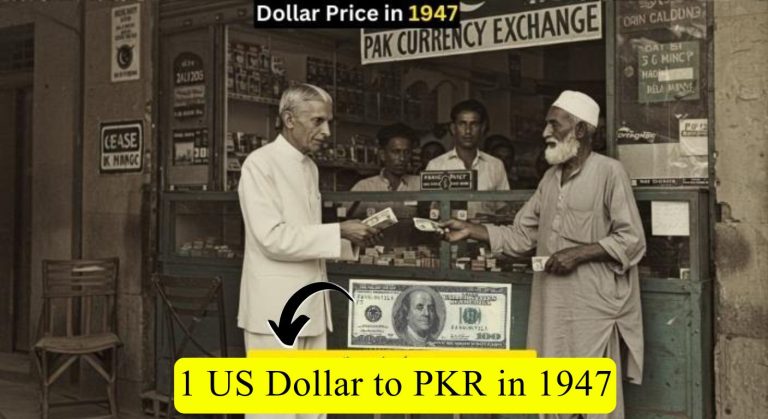US Ends Waiver for India’s Chabahar Port Operations

The United States has officially revoked the waiver that previously allowed India to operate and develop Iran’s Chabahar Port. This move is expected to create uncertainty for India’s regional connectivity plans and could also reshape trade and strategic relations in South and Central Asia. The decision will take effect from September 29, 2025, marking an end to a special exemption that had been in place since 2018.
Background of the Chabahar Port Project
Chabahar Port is located on the Gulf of Oman in southeastern Iran. For India, it has been considered a gateway to Afghanistan and Central Asia, bypassing Pakistan. New Delhi has invested in the Shahid Beheshti terminal of the port and has also planned roads and rail links to connect it with Afghanistan’s road network.
The port project is part of India’s long-term strategy to gain access to landlocked Central Asian markets and to strengthen its trade presence in the region. For Iran, Chabahar serves as a vital project to expand its international trade despite Western sanctions.
In May 2024, India and Iran signed a long-term agreement for India’s continued operation of the terminal. This agreement replaced the earlier pact of 2016 and was supposed to provide stability after years of short-term extensions.
US Waiver and Its Revocation
In 2018, the US granted a waiver under the Iran Freedom and Counter-Proliferation Act (IFCA). The waiver was aimed at supporting Afghanistan’s reconstruction and economic development, allowing India to use Chabahar for trade with Afghanistan without facing sanctions.
However, the US State Department has now announced that the waiver will no longer be valid after September 29, 2025. Officials stated that any entity involved in operating or facilitating activities at Chabahar could be exposed to sanctions once the revocation comes into force.
The decision comes as part of Washington’s “maximum pressure” policy on Iran, designed to restrict Tehran’s international partnerships and economic activities.
Why the US Decision Matters
The waiver had allowed India to pursue its plans in Iran without fear of US penalties. Its removal creates several challenges:
- India’s regional connectivity projects may face delays because companies and banks might fear secondary sanctions from the US.
- Iran’s economic hopes from Chabahar may weaken as international investors and partners could hesitate to engage with the project.
- Afghanistan’s trade access may suffer, since the port was seen as a lifeline for its imports and exports, bypassing routes through Pakistan.
The US move also signals Washington’s intention to keep Iran isolated, even if it indirectly impacts its strategic partner India.
India’s Position and Concerns
For India, the revocation is a diplomatic and economic setback. New Delhi had long argued that Chabahar was not only a commercial project but also a stabilizing factor for Afghanistan. By connecting Afghanistan with global markets, India believed it could support the country’s economy and reduce its dependence on Pakistani transit routes.
India has already invested heavily in the project, including port equipment and infrastructure, and had committed to expanding trade through Chabahar. The signing of the long-term agreement with Iran in 2024 was seen as a major achievement, providing confidence that India’s involvement would continue smoothly.
Now, with the waiver revoked, India will have to carefully calculate its next steps. Continuing operations could risk sanctions, while stepping back would mean losing strategic influence in the region.
Iran’s Perspective
For Iran, Chabahar is an important part of its economic diversification strategy. The port is Iran’s only oceanic port and plays a central role in its plan to strengthen trade with neighboring countries despite sanctions.
Tehran has repeatedly stated that Chabahar is a civilian and commercial project, not linked to military ambitions. Iran had welcomed India’s investment, considering it a reliable partnership in the face of Western pressure.
The US decision to revoke the waiver will likely frustrate Iran, which sees it as another attempt to block its economic independence.
Impact on Afghanistan and Central Asia
Chabahar has been particularly significant for Afghanistan. Over the years, shipments of food, wheat, and other essential goods from India to Afghanistan have passed through the port. With Pakistan often closing border crossings due to political tensions, Chabahar offered Kabul a more stable and friendly alternative.
The end of the waiver could make this trade route less reliable, which may directly hurt Afghanistan’s fragile economy. Similarly, Central Asian nations that hoped to use Chabahar as a trade corridor may also face setbacks.
Global and Strategic Implications
The US decision adds a new layer of complexity to South Asian geopolitics:
- India-US Relations: Washington and New Delhi have deepened strategic ties in recent years, especially through defense and technology cooperation. However, the Chabahar issue creates friction, as India considers the port crucial for its regional ambitions.
- China Factor: China, which is heavily involved in Iran through its Belt and Road Initiative (BRI) and the Gwadar Port in Pakistan, may benefit indirectly. If India reduces its role in Chabahar, Iran may turn more towards China for investment and support.
- Regional Stability: The weakening of Chabahar’s role could affect regional stability, especially if Afghanistan’s trade and development prospects suffer further.
Challenges for India
Moving forward, India faces difficult choices:
- Defying US sanctions could risk its economic and strategic relations with Washington.
- Stepping back from Chabahar could mean losing years of investment and influence in Iran and Afghanistan.
- Balancing ties with both the US and Iran will require skillful diplomacy and careful economic planning.
Some analysts believe India might try to seek a new waiver or special arrangement with Washington, arguing that Chabahar serves regional stability rather than strengthening Iran’s regime.
Conclusion
The US decision to revoke the waiver for Chabahar Port operations is more than just a technical sanctions issue—it is a move with wide-ranging consequences for India, Iran, Afghanistan, and the broader region.
India’s ambitions of creating a secure and reliable trade corridor to Central Asia now face serious hurdles. Iran’s hopes for expanded economic engagement also take a hit, while Afghanistan could lose a vital trade lifeline.
At the same time, the move reflects Washington’s consistent approach of maintaining maximum pressure on Tehran, regardless of collateral effects on allies like India.
The coming months will show how India chooses to navigate this challenge: whether it seeks another diplomatic exemption, slows down its activities, or looks for creative solutions to keep Chabahar alive without crossing Washington’s red lines.






